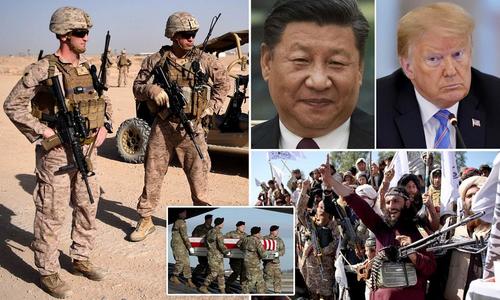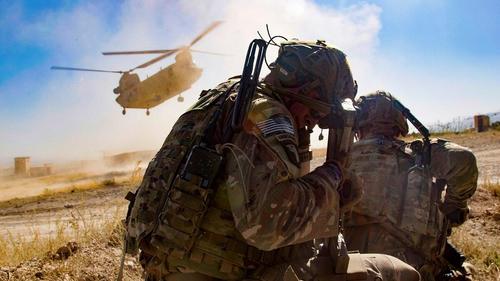The Trump administration is declassifying a US intelligence report that China offered to pay non-state actors in Afghanistan to attack American forces, according to Axios, citing two senior administration officials.
Amusingly, Axios prominently disclaims the intel as ‘unconfirmed’ in their headline – a word which somehow escaped the MSM’s vocabulary when a nearly identical report came out in June regarding alleged Russian bounties on American soldiers, which remains — unconfirmed.
According to the report, Trump was briefed on the ‘as-yet uncorroborated’ Chinese bounty intelligence on December 17, and discussed it with national security adviser Robert O’Brien the same day according to officials.
“The U.S. has evidence that the PRC [People’s Republic of China] attempted to finance attacks on American servicemen by Afghan non-state actors by offering financial incentives or ‘bounties’” and said the National Security Council “is coordinating a whole-of-government investigation,” one official told Axios, who would not say if he was referring to the Taliban or other ‘non-state actors.’
The same person said that the Trump administration received earlier intelligence regarding “PRC weapons illicitly flowing into Afghanistan.”
The British and U.S. governments have previously complained about Chinese-made weapons being used by the Taliban.
- The interest in Afghanistan stems in part from Beijing’s desire to prevent Chinese Muslim separatist groups from using the country as a base.
- Afghan security officials recently discovered an alleged Chinese spy ring operating in the country apparently seeking to target Uighurs there, according to a Dec. 25 report from the Hindustan Times. -Axios
It’s unknown if members of Congress or President-elect Joe Biden have been briefed, however Biden currently has access to the President’s Daily Brief (PDB). When contacted for comment, the Chinese embassy in D.C. didn’t respond to the news outlet, while President Trump is not believed to have discussed it with Chinese President Xi Jinping. Also unclear is when the alleged bounties were offered – though the source says it happened sometime after late February after the United States struck a deal with the Taliban.
One senior official involved in the latest China discussions told Axios “Like all first reports, we react with caution to initial reports,” adding “any intel reports relating to the safety of our forces we take very seriously.”
Following up on the briefing, officials conducted a Policy Coordinating Committee (PCC) meeting to discuss the intelligence. The meeting had two objectives; gain more insight from the intelligence community to verify the initial reports, and to consult with the intelligence and defense communities involved in the force protection posture for the remaining US forces in Afghanistan.
More via Axios:
Behind the scenes: The intelligence was included in the president’s briefing on Dec. 17, and Trump was verbally briefed on the matter by National Security Advisor Robert O’Brien, officials said.
- Administration officials across multiple agencies are currently working to corroborate the initial intelligence reports.
- Axios was not able to visually inspect any reports detailing the intelligence. A summary was described by phone by the officials.
Why it matters: If this intelligence were to be confirmed, it would represent a dramatic strategic shift for China, and sharply escalate tensions between China and the U.S. If the intelligence does not prove accurate, it raises questions about the motivations of the sources behind it as well as the decision to declassify it.
- China has long played a quiet diplomatic role in Afghanistan, inviting Afghan Taliban officials to Beijing to discuss plans for a peace deal and encouraging an Afghan-led solution, though Chinese-made weapons and financing have at times also flowed into the conflict there.
- It seems “incongruous” that China would take such a provocative action in Afghanistan, Andrew Small, a senior fellow at the German Marshall Fund who specializes in China-Afghanistan affairs, told Axios.
- Pursuing peace in Afghanistan is “one of the extremely rare areas where the US and China still have a willingness to work together on an area of importance,” Small said. “They know the drawdown is taking place. We’re not in the context where anything else needs to happen to US troops in Afghanistan. There is no reason to create additional pressure on US forces.”

